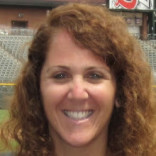What does it mean to be the Chosen People? Does the idea of chosenness imply entitlement or responsibility?
For contemporary western-minded people we are uncomfortable with the idea of chosenness, as it goes against values of equality. If God created all human beings, why would God single out one group of people? For what purpose?
Rabbi Jonathan Sacks writes, “ The Hebrew Bible speaks of a God who not only loves, but who loves precisely those who are otherwise unloved – the younger rather than the older, the weak, not the strong; the few, not the many. From this flow all acts of chosenness in the Bible: Abel, not Cain; Abraham, not a nation; Isaac, not Ishmael; Jacob, not Esau; Israel the slaves, rather than Egypt the masters. To be sure, no one is rejected. Divine choice does not mean that God is with this person, not that; with one nation, not another…There is nothing exclusive about patriarchal covenant: “Through you shall all the families be blessed.” But there is nonetheless an insistence on the integrity of diversity, the dignity of difference; the preciousness to God of those whom the world ignore or mistreats, God sets His image on the only creature for whom difference is a source of identity, namely man. And to exemplify this truth, He chooses Israel, the people who are called on to be different, to show that for God, difference matters.”
Rabbi Bradley Artson shares his understanding of chosenness. “Jewish chosenness is a sentence fragment. It is grammatically and theologically incomplete. What completes the chosenness of the Jews is the assertion that Jews were (and are) chosen to embody the life and values of the Torah and rabbinic tradition. By living a life centered on mitzvot and by constantly growing as Jews, we choose to be chosen. As with any love relationship, both partners have the power to affirm or to rupture that relationship of their own free will. The idea of brit (covenant) places that enormous responsibility in our hands, no less than in those of God…By immersing ourselves in the study and practice of Torah, we Jews renew our unique relationship with God. By living lives centered on God and mitzvot, we justify the claim, not of being God’s only love, but of being God’s first. And in building communities of holiness and love, we assist our non-Jewish neighbors in cultivating their love relationship with God as well – joining hands together to build a world that is just, compassionate, and worthy of God.”

